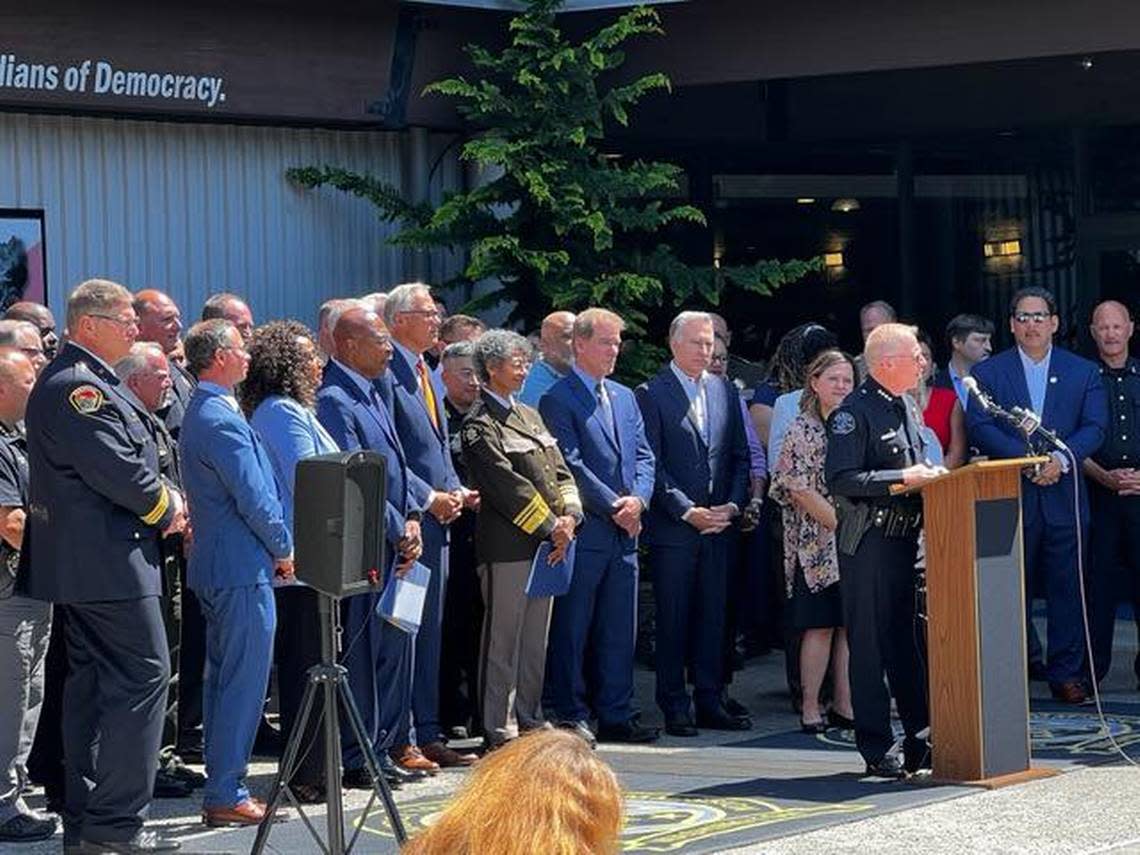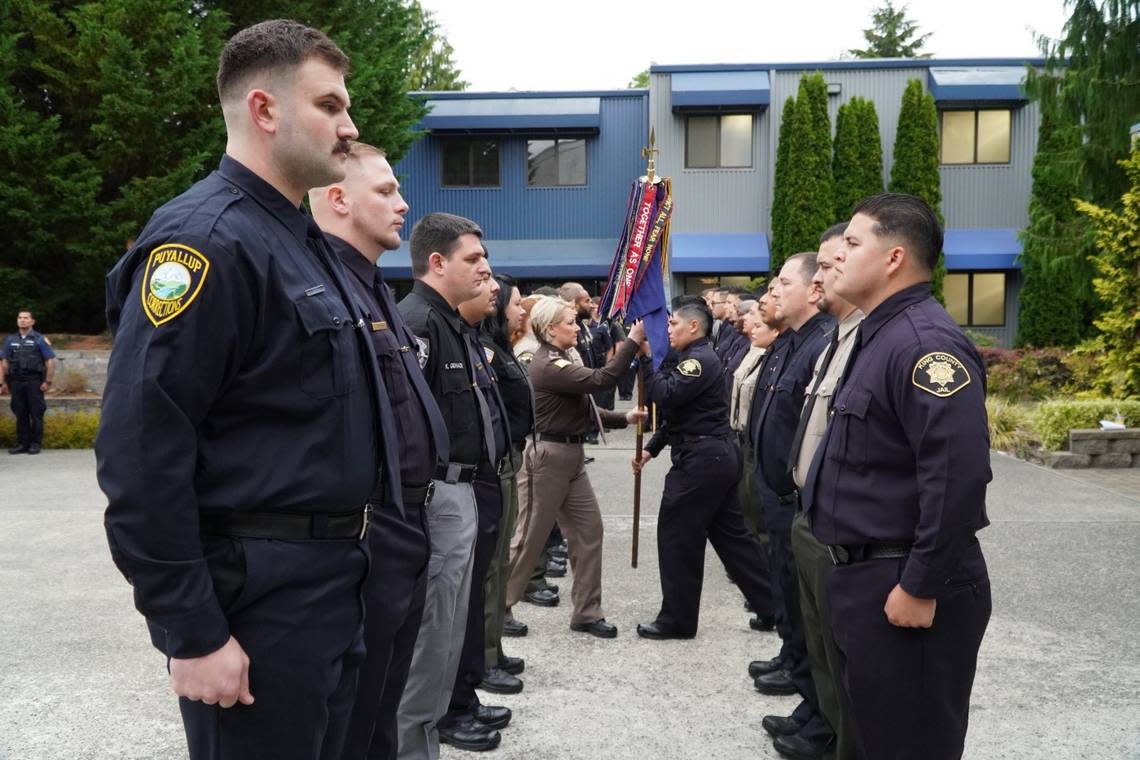New E. Washington police officer training campus proposed for Pasco
Pasco may soon be home to a class of 30 new police recruits learning how to enforce the law — but closer to home.
Pasco is one of four spots across Washington state proposed to house a regional law enforcement training center. It would be the only one east of the Cascades. The others are planned for Vancouver, Everett and Bellingham.
Currently, if someone wants to become an officer, first they need to get through a lengthy screening process. Then, after they area hired by an agency they must spend nearly five months at a training academy in Burien.
For many people this is just not possible, Pasco Police Chief Ken Roske said at a news conference this week with Gov. Jay Inslee on a proposal to expand the Criminal Justice Training Commission academy.
“We’re very excited about this,” Roske said. “As we look for viable candidates, there is a segment that we miss because they don’t have the opportunity to relocate for 4 1/2 months away from their family.”
For Roske, this isn’t just a hypothetical situation. He gave an example of a female applicant he intended to hire, but she couldn’t leave behind her two children, ages 2 and 4, for that long to train in Burien.
Under the proposal, candidates could train at a training center Pasco already has on Clark Street.
The hope is that applicants from the region could commute there for classes during the day and return home at night.

The state Legislature still needs to approve the expansion plan.
“For those who want to keep officers safe and the public safe in interactions, the single best thing you can do is have a well-trained officer, and we are going to have well-trained officers to reduce untoward interactions with our citizens,” Inslee said at the news conference.
Sen. John Lovck, D-Mill Creek, expects to introduce the plan when the session starts in January. He is still working out details on costs.
“Cost is not going to be the issue,” Lovick said at the news conference. “This is something that we need to do.”
Officer shortages
The new centers can’t come soon enough, said Lovick and Inslee.
The Washington State Association of Sheriffs and Police Chiefs reported earlier this week that there were 495 fewer officers across the state in 2021 than the year before.
Washington already had the fewest officers per capita in the nation.

Wenatchee police Chief Steve Crown said that the regional academies won’t solve all of the challenges facing recruitment efforts, but it would help alleviate one of the barriers.
While Eastern Washington agencies have more success then those on the west side of the state, Tri-City police agencies are still struggling to fill openings.
Pasco Police Department is trying to fill seven positions and a quick poll of all the Tri-City agencies found that area agencies are down 30 to 50 people, Roske said.
Filling those spots is made more complicated by the lack of openings at the Burien academy. There is a four-month waiting list to get into the academy, and 134 officer candidates waiting to be trained.
Roske point out this new center in Pasco would help diversify the police force. He said often young adults are sometimes the only English speakers in their family and can’t be away from their extended families for 19 weeks.
“What we’re also missing is the cultural diversity that would bring,” he said. “Not only from different walks of life, but from those people who normally want to serve a community but just can’t relocate.”
And by keeping them closer to the communities where they will serve, new officers from other areas would have a chance to become part of the community while they’re still in the academy.
Also, the hope is that this more diverse workforce will help with recruiting more officers in the future, Roske said.
